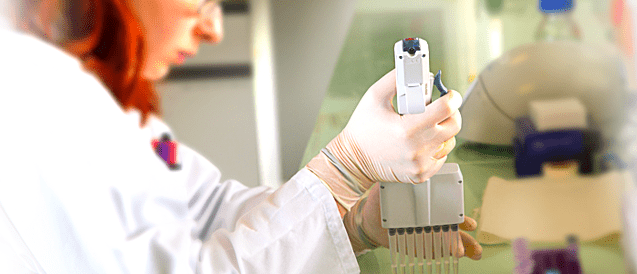IDBiotech, an ELISA development specialist, explains why the quantification of HCPs is a key point in CMC strategy.
HCPs are proteins produced by the host organisms (bacteria, yeast, mammalian cells, plants) used to express recombinant therapeutic proteins. According to pharmaceutical guidelines for quality risk management, HCPs fit the definition of Critical Quality Attribute (CQA) due to their potential to affect product safety (immunogenicity risk) and efficacy. Therefore, it is a regulatory requirement to monitor the removal of HCP impurities in drug products during bioprocess development. This critical analysis is done using sensitive ELISA, this method being considered by the regulatory authorities as the “Gold Standard Method” for the quantification of HCPs.
Generic ELISAs available on the market (Cygnus, BioGenes, Bioreliance…) are accepted from preclinical phase to clinical phase 2. A process-specific ELISA, using polyclonal antibodies specifically developed to perfectly cover the whole HCP proteome expressed by the host organism, is expected by regulators for phase 3 clinical trials to demonstrate the clearance of HCP in the downstream process and the quality of the product.
However, analysing a mixture of hundreds of HCPs at varying concentration is a significant technical challenge and we advise you to carefully consider the matter!
Switching to a process-specific ELISA as early as possible can be a good strategy to decrease the risk associated with process development, process validation, performance qualification and clinical phases! IDBiotech was recently contacted by several biotech companies about the development of custom ELISAs, which included the production of specific antibodies. Unfortunately, in some cases, this only came after those companies incurred huge losses. The worst case was a biotech company with a highly contaminated phase 1 GMP batch. To avoid this kind of situation, IDBiotech now proposes to help biopharma companies select the most suitable generic assay by evaluating different commercial immunoreagents. They demonstrate the percentage of coverage of antibodies to the HCP proteome by 2D-PAGE combined with Western Blot analysis. They also propose to compare the 2D-PAGE profiles obtained before and after depletion of the HCP from the sample using the antibodies in affinity chromatography columns.
Finally, IDBiotech also recommends a complementary orthogonal method like Mass Spectrometry analysis. This technical approach is a good way to generate knowledge on the process and the product in order to add value to the innovation and make it more robust. Mass spectrometry can be used as a characterisation tool for identifying HCPs (qualitative approach) and for multiplexed quantification of selected HCPs.
Also, do not forget that routine testing might not be required on a regular basis if the control of HCPs is well demonstrated and there is consequently a return on early investment in HCP analytic capability.



